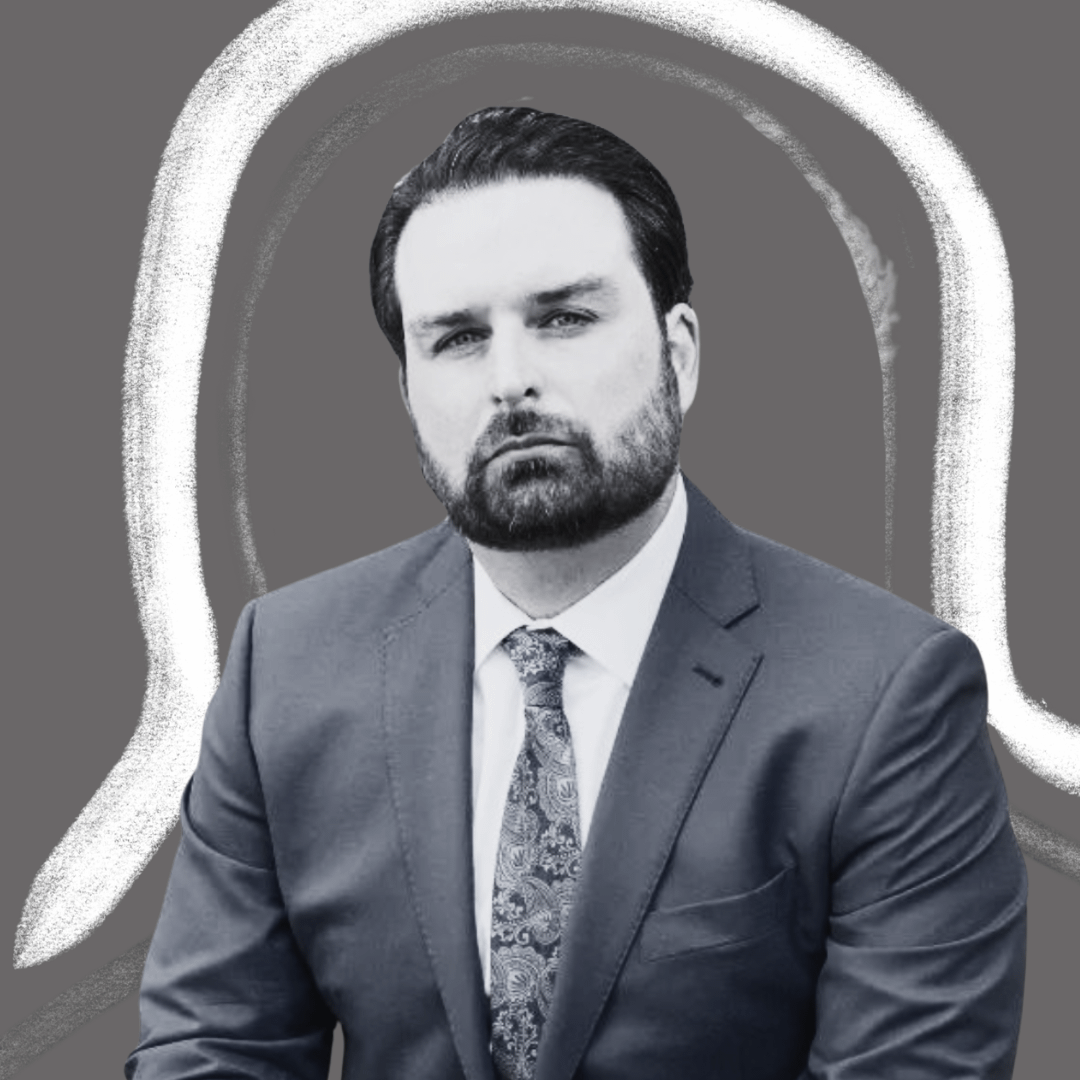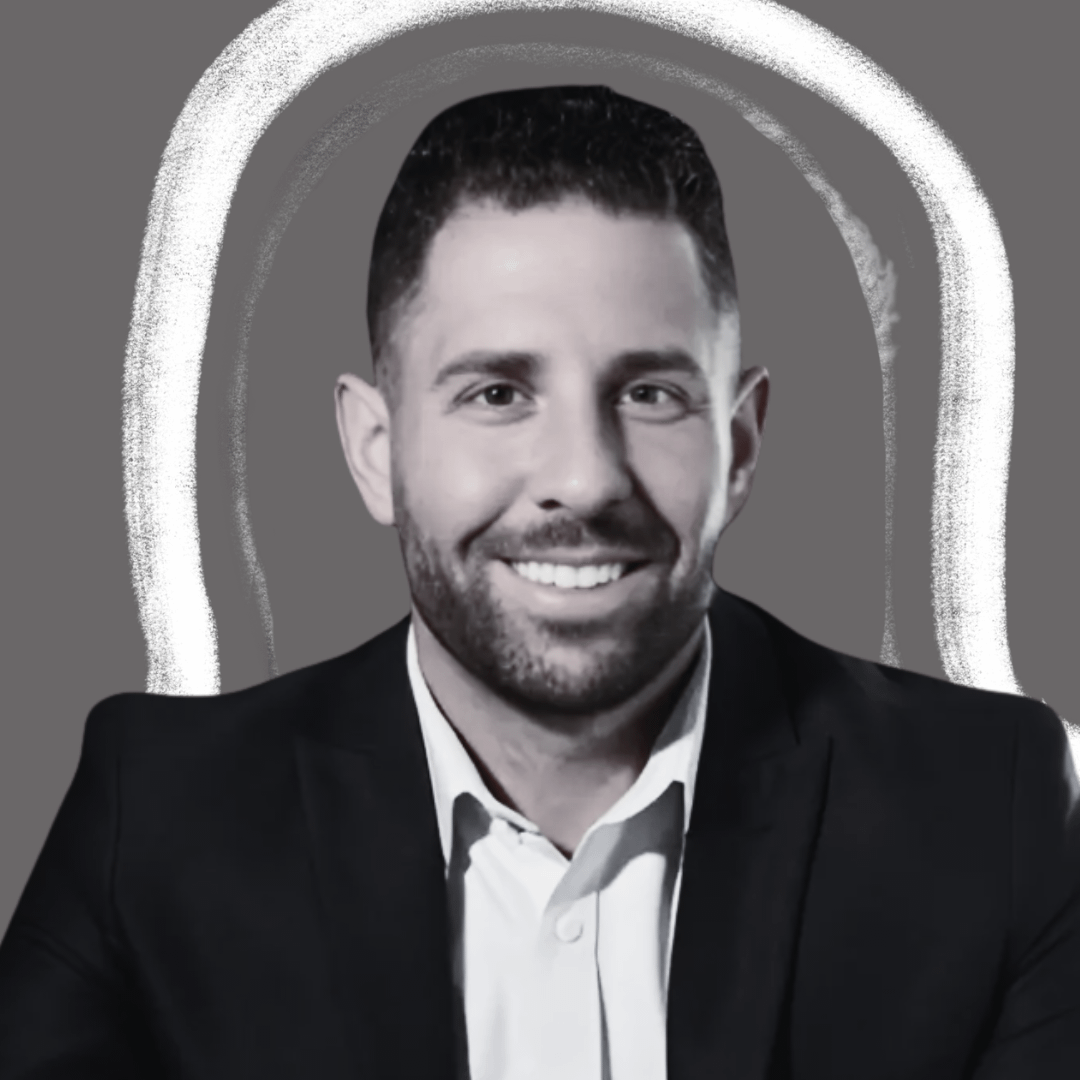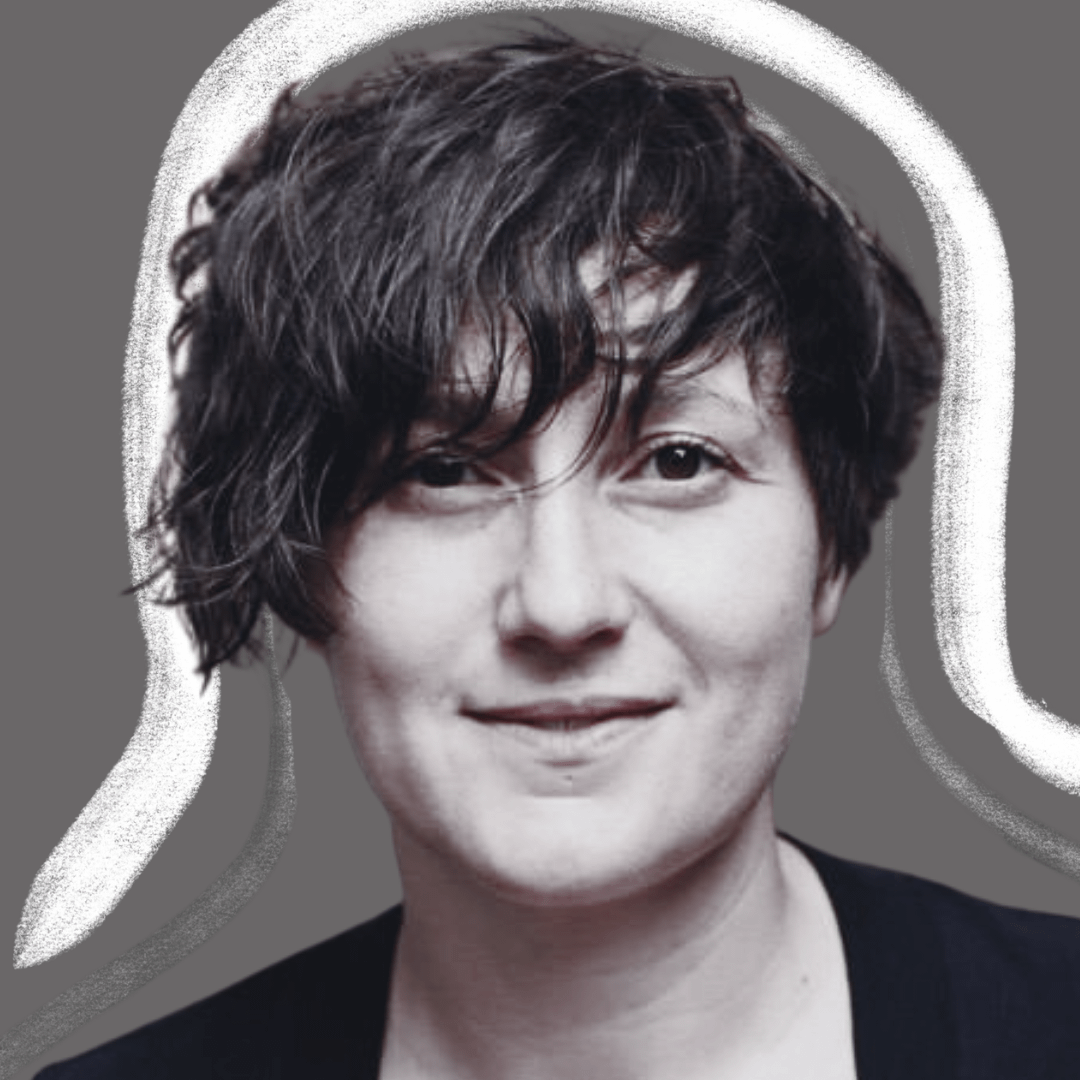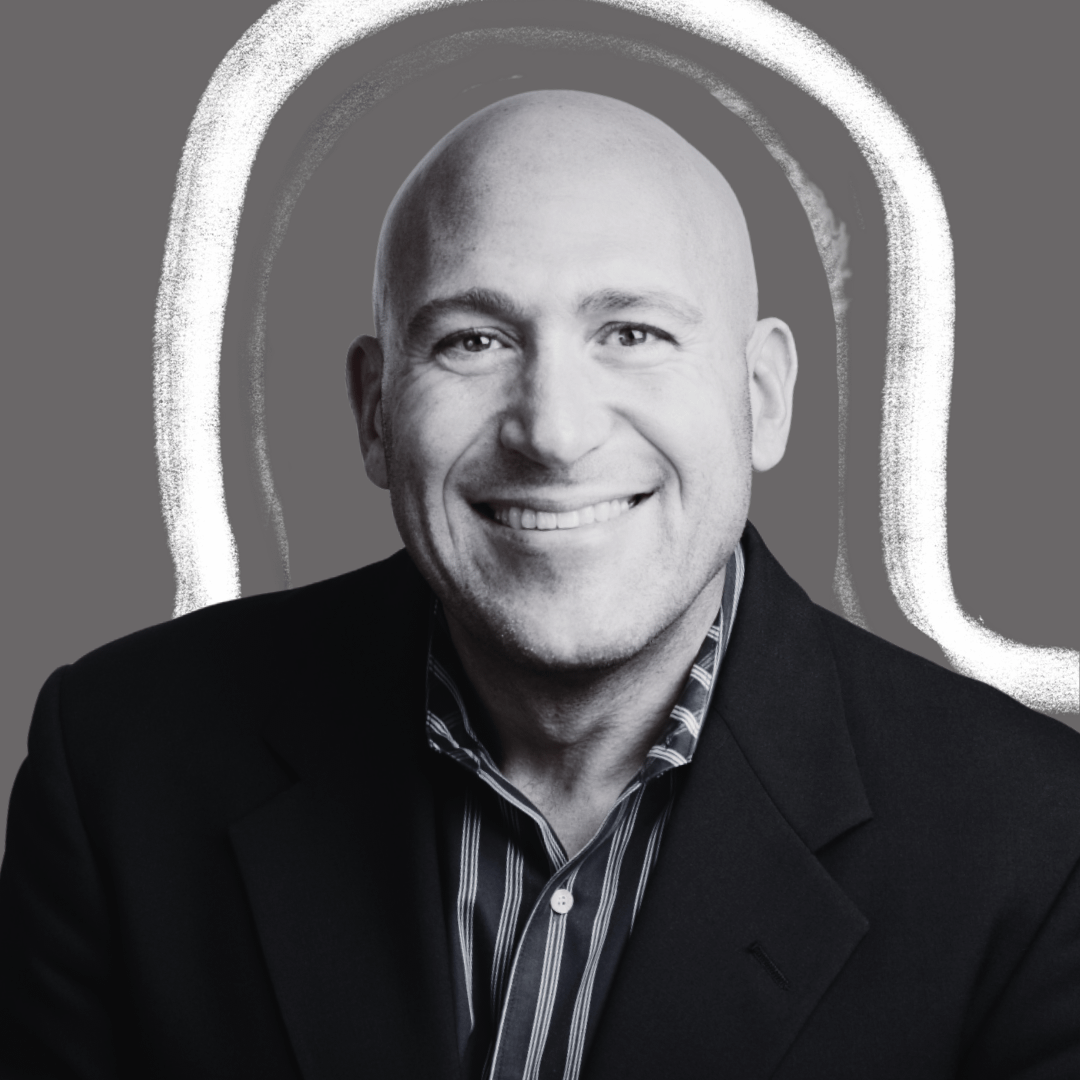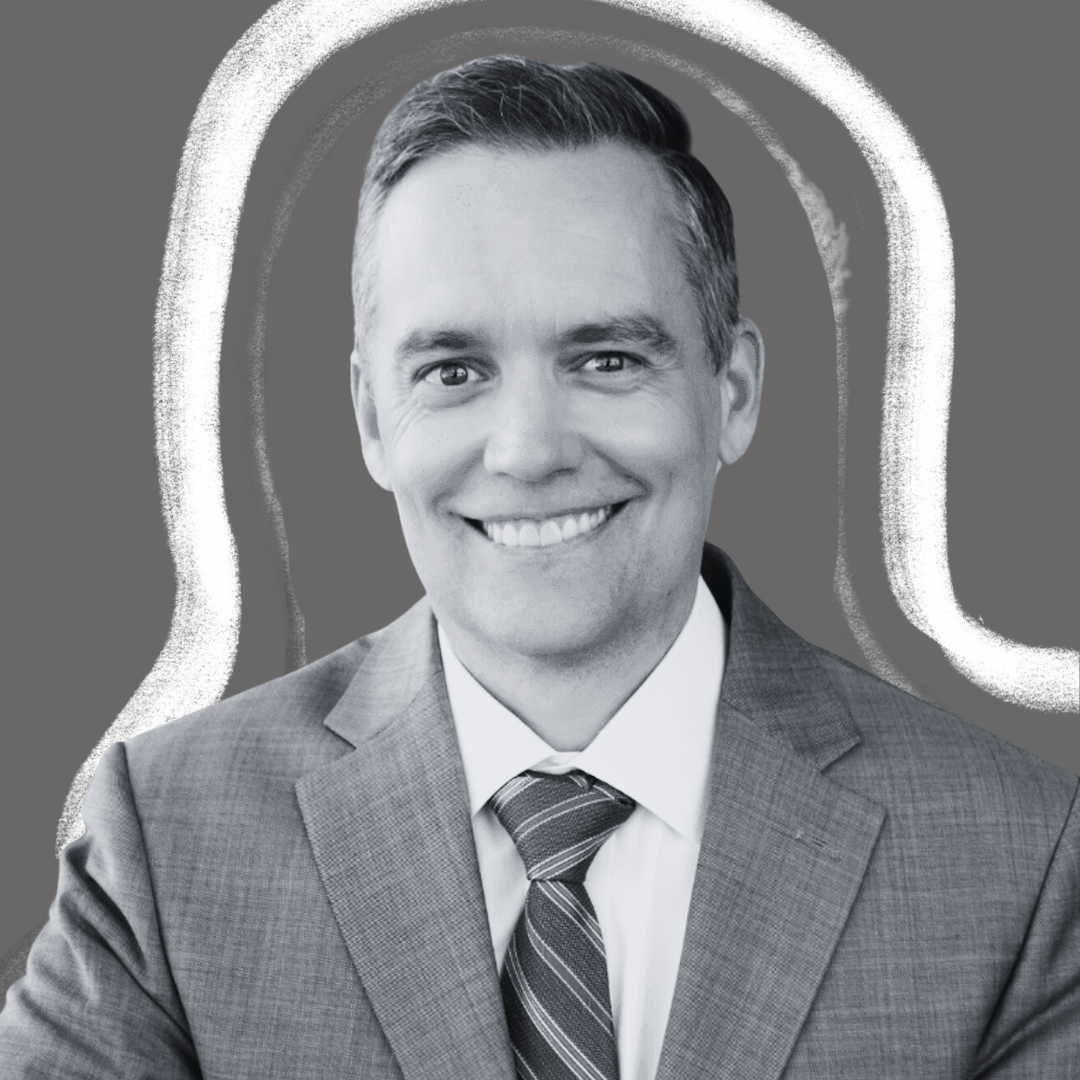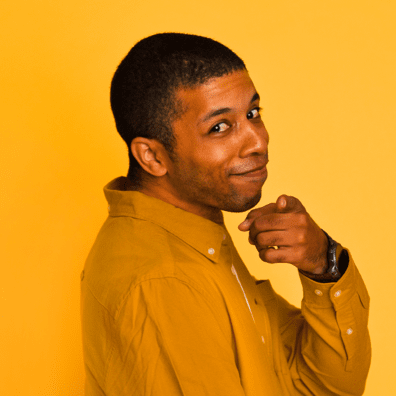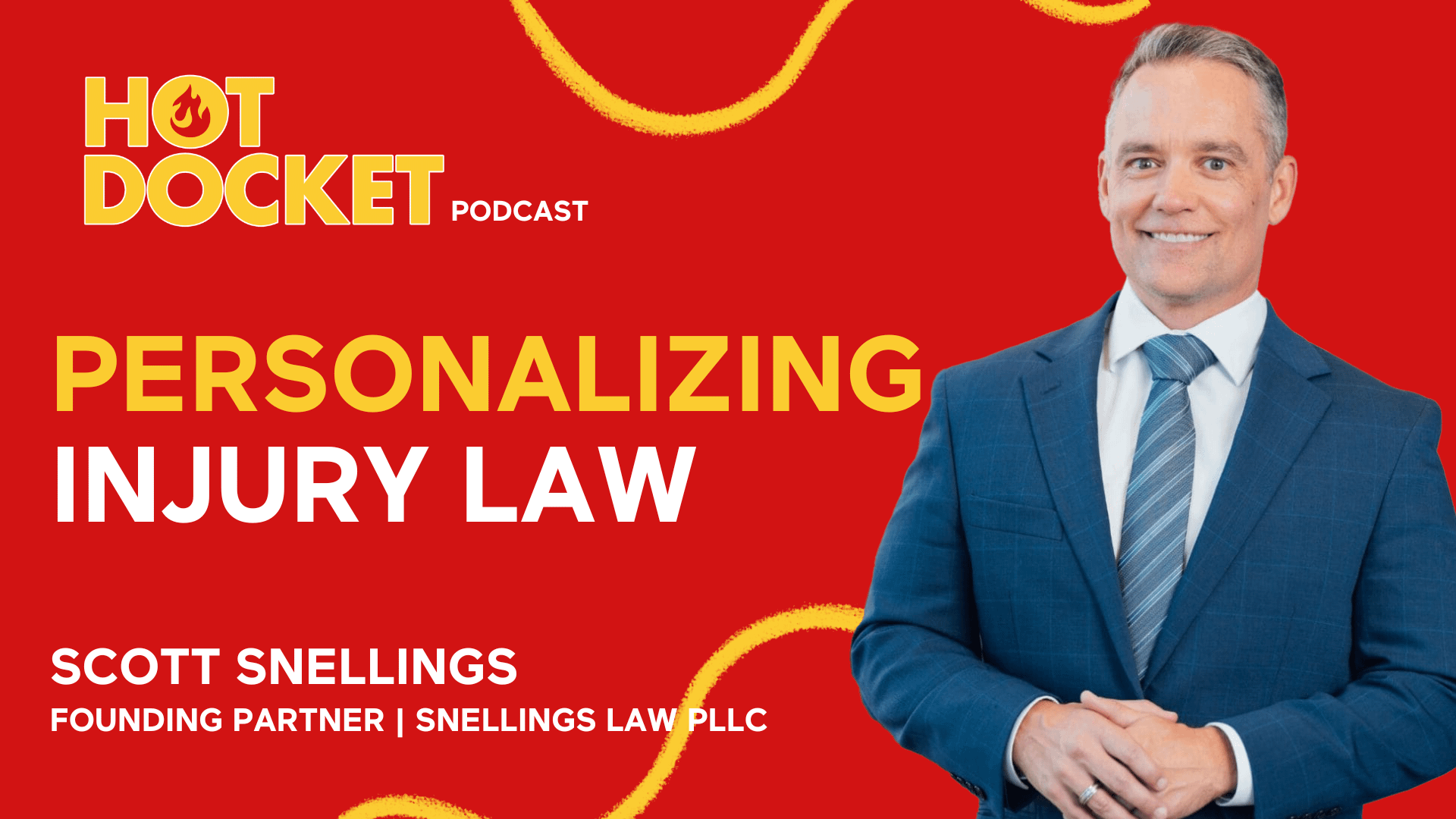
Episode Overview
Can personal injury law firms thrive through genuine community involvement and a deep-rooted love of service, even in an oversaturated market?
Standing out as a personal injury law firm takes more than just robust marketing—it requires building authentic connections and delivering exceptional service. It also helps to have a genuine love of serving others. This approach can resonate deeply within your local community and redefine the norms of legal branding. Are you ready to serve, stand out, and make a meaningful impact? Tune in to learn from the best!
In this week’s Hot Docket, Bobby and Andrew speak to Scott Snellings, Founding Partner at Snellings Law PLLC, joins us to shed light on ways you can use community engagement to grow your personal injury law firm.
Having started Snellings Law just two months before undergoing a kidney transplant, Scott highlights the vital role that community service and personal dedication play in building a successful law firm.
To cap things off, the guys play a fun game of Two Truths and a Lie!
Episode Links
Want to hear more from elite lawyers and industry-leading marketers?
Follow us on Social Media for more
Episode Topics
- Be Clear on Your Vision: Know what you want to build and identify your ideal client.
- Invest in Systems and Processes: Implement a robust case management system to streamline tasks and increase efficiency.
- Emphasize Community Involvement: Regularly participate in and sponsor local events to build trust and visibility.
- Focus on Authenticity: Genuine interactions and consistent service create lasting impressions and referrals.
- Continual Learning: Prioritize ongoing education and adaptability to stay ahead in the legal field.
Episode Transcript
[00:00:00] Scott Snellings: Every single person that has ever stepped in this firm and collected a paycheck has made a difference in this firm, whether they're still here or not, and we expect that we expect every single person we have our L10 meetings. To come in with ideas or problems that we can solve and make the firm better. [00:00:19] Bobby Steinbach: Welcome to hot docket the show where we talk about winning marketing strategies that have built the most successful law firms [00:00:25] Andrew Nasrinpay: Join us every two weeks for the latest trends and tactics to grow your law firm [00:00:29] Bobby Steinbach: Hey everybody and welcome to the hot docket podcast Today's theme is going to be talking about building a personal injury law firm Through community involvement and a love of serving others. [00:00:39] Andrew Nasrinpay: Yeah, I think it's really interesting when local law firms are able to really build a brand and build differentiation, uh, starting at the grassroots and really being involved in the community they're in. [00:00:50] Bobby Steinbach: Yeah. You don't always have to be the big TV guy to make it work. So with that, uh, I'm happy to introduce today's guest here with us today. [00:00:59] Bobby Steinbach: Uh, Scott Snelling, Scott, thanks for joining. [00:01:06] Scott Snellings: Yeah. Thanks for having me on guys. I've been looking forward to this one. [00:01:09] Bobby Steinbach: Awesome. Us too. Uh, can you tell us a little bit more about why you became an attorney and what the journeys look like for you? [00:01:15] Scott Snellings: Yeah, absolutely. So, I had zero interest in being an attorney. I was going to be a doctor and I went to Baylor University and my first semester I made all A's and a D. [00:01:24] Scott Snellings: And the, uh, the D was in biology. So, yeah, that was not in the cards for me. Uh, I was a psychology major and really enjoyed that but never saw myself. in any area of psychology and kind of fell into an internship with a personal injury lawyer and absolutely loved it. It kind of defied everything that I thought a lawyer did day in and day out and really kind of saw that as a path forward. [00:01:49] Scott Snellings: So took the LSAT, ended up getting into Baylor Law School, uh, which is where I really wanted to go because, uh, they have a practice court program. And that was the thing that really drew me there. So I went through that, loved it, and here I am. I started off at a defense firm doing products liability defense, and then after about four years of that, you know, I knew it all. [00:02:09] Scott Snellings: Uh, so we, we jumped ship in 2008, not a very great economy at the time and started a personal injury law firm in a very conservative county. Um, so sometimes, uh, being naive is, is an attribute. [00:02:22] Bobby Steinbach: And did you, uh, always kind of know you would make your way back to PI or did you think maybe you'd spend more time? [00:02:41] Scott Snellings: Yeah. Yeah. Liability protection. So talk about that. So what you're doing is you're trying to be a plaintiff's lawyer. So when you think of what it means to be a real estate lawyer, it's like what's a real estate lawyer to you? Well, I'm just, it depends on the job. I mean, I've always wanted to be a lawyer. [00:02:47] Scott Snellings: Um, I'm not doing it for the sake of the job, but it's just for the sake of the job. But you know, I mean, I, I'm not doing it on the defense side. No, I always want to be a plaintiff's lawyer always. learning a ton and really gained a whole bunch of confidence doing that too. [00:02:57] Andrew Nasrinpay: So what are some experiences you've had in life that made your firm's motto the love of serving others? [00:03:03] Andrew Nasrinpay: And can you tell us a little bit about some of your own health issues and how that kind of impacted the way you see the world? [00:03:09] Scott Snellings: Yeah, so I mean growing up my parents were always real big in the service You know, my dad for a long time served as a volunteer for the local police department I think one year he logged like 2, 000 hours So service has always been big. [00:03:23] Scott Snellings: Growing up, you know, I went to a Baptist church and always stressed service and volunteering. And so, you know, both our religious and, and family upbringing really put service at the forefront. Uh, we want to give back to the communities that we're in and, you know, going to, to Baylor university, it was always encouraged to serve there too. [00:03:43] Scott Snellings: And so really it's been with me every step of the way. Um, in terms of, in terms of health issues. Yeah, I've, I've had a bit of a health issue, uh, in my lifetime. Uh, in fact, uh, two months after starting Snellings Law. So Snellings Law started September 1st, 2017. And on Halloween of 2017, uh, I got a kidney transplant. [00:04:04] Scott Snellings: So I was, I was diagnosed with ulcerative colitis back in 2008. I was put on some medication that, uh, I reacted with, and it basically shut down my kidneys. And so I had about 10 years where my kidneys were just declining, declining, declining. And it finally got to the point where I needed a transplant. [00:04:21] Scott Snellings: That just happened to coincide with when I started the law firm. And, uh, thankful Lord, my best friend was an amazing match and he stepped up, uh, they, they rolled us both back on Halloween morning, which is kind of a weird experience. And, uh, his wife was eight months pregnant at the time. And so, you know, he's, he's my hero, uh, Jacob Thompson. [00:04:40] Scott Snellings: And I try to mention his name wherever I can, because, um, if you are not a donor, you can be, and you can be somebody's hero. And I promise you, they're not going to take your organs if you still need them. [00:04:50] Bobby Steinbach: I, uh, it's funny how it always works out that things happen at the most inopportune time. Andrew and I started Mean Pug, um, probably two days after they announced COVID. [00:05:01] Bobby Steinbach: So they announced COVID and two days later we had an agency. So it just works out that way. It's just meant to be. [00:05:09] Scott Snellings: It is. But for me, you know, it was really, it ended up being good because I had cases that I took with me. But you know, it's not like you're going to get cases right away when you start a law firm, right? [00:05:19] Scott Snellings: You gotta, you gotta put in some foundational work in terms of the marketing and making sure everybody knows that you, you know, you have this brand new law firm. And so for me, you know, I was out like maybe two weeks. It was an amazingly quick surgery recovery. I was only in the hospital three days and then I was back in the office. [00:05:37] Scott Snellings: I don't know that my doctor would want me to say this, but I was back in the office like a week and a half later. And so I had basically handed the keys to the brand new firm to a paralegal who I'd known for, you know, two months at the time and just kind of, Um, we had some systems in place, not very many, um, and it was basically just like, Hey, let's not mess anything up while I'm out. [00:05:57] Scott Snellings: I'll come back and we'll fix whatever. So it ended up being good. You know, could I have done that if we had a docket of 50 cases, a hundred cases? Probably not. I would have had to bring in another attorney to help or something like that. [00:06:10] Andrew Nasrinpay: So what do you think your firm does better than anyone else and what's driving that success? [00:06:16] Scott Snellings: Man, that's a, that's a really good question. I mean, we're, I'm in Texas, there's obviously a whole lot of personal injury law firms and some really, really good ones. I could name 10 off the top of my head that I love working with. We share a lot of cases with, with other firms too, especially the bigger cases. [00:06:33] Scott Snellings: But I think what we do different is we're really Systematized to not just be efficient, right? Because the last thing we want to do is have someone come in and everybody's treated the exact same way. Their case goes the exact same way. It's negotiated the same way. But what we've done is we've systematized the things. [00:06:53] Scott Snellings: That we need to do on every single case so that we free up our team to really dig in where they can provide value, where they can bring creativity and where they can really spend the time with the clients that we need to develop that personal relationship. Because there's just no way that you can really maximize the value of a case and truly help someone if you don't know them. [00:07:15] Scott Snellings: Right. You got to understand what they're going through. You got to understand where they've been. You got to understand their fears and concerns going forward. And so I think we do a really good job of that. I also think that we do a really good job of training. Uh, we have in office trainings probably at least once a week. [00:07:31] Scott Snellings: Our leadership team does a fantastic job of identifying areas where we can get better. Um, or ideas and we bring the team in and say, okay, here's what we're thinking. How would this play out if we, you know, if we put this new process in, if we started doing this a different way than how we're doing it now. [00:07:48] Scott Snellings: And so, uh, anytime we interview somebody, we interviewed somebody on Monday, I always tell them, say, Hey, look, every single person that has ever stepped in this firm and collected a paycheck has made a difference in this firm, whether they're still here or not. And we expect that. We expect every single person we have our L10 meetings to come in with ideas or problems that we can solve and make the firm better. [00:08:16] Scott Snellings: And so I really think that approach has made us different than the vast majority of firms out there. [00:08:22] Bobby Steinbach: Yeah, I'd like to step back to something you mentioned, which is Basically, you're not beholden to your systems, right? I think, uh, there is something, there's like this fine line that you've got to walk, especially as you scale, where you need process and systems in order to work, but you want the flexibility. [00:08:41] Bobby Steinbach: To be bespoke to a client in a given circumstance to write. So what's that thing? Like people go to McDonald's because they know exactly what they're going to get every time. And that's what you get with a bigger brand. But it's also the downfall in many cases of working with a bigger brand. So like walk me through that in a little bit more detail. [00:09:00] Bobby Steinbach: You know, when do you use the process? When do you kind of go off the cuff, so to speak? And how do you have that decision making process, uh, work out? [00:09:08] Scott Snellings: Yeah, sure. So, uh, we're FileVine users. That's who we use for our case management system. And so all of our task flows are built into FileVine. Obviously, it's in a Word document too, just in case FileVine crashed one day or something happened. [00:09:21] Scott Snellings: And so what that does is that frees up everybody from having to think, okay, what's the next step? What's the next step? But what it also does is it allows us to have tasks out there of, hey, is there a specific witness we need to go talk to here? Or, hey, have we evaluated this? Have we evaluated that? And what that does is it basically just creates a spark of, Okay, I need to think about this. [00:09:42] Scott Snellings: I need to dig in here. Do we have all the parties? Do we have everybody? Yeah, there's a crash report, but did that get everybody on there? Is there a potential for another party? Hey, there's a DWI here. Is there a potential dram shop claim? Where were they drinking? Do we have this investigation? Have we gone out to the scene and seen if there's, there's gas station footage? [00:10:02] Scott Snellings: Is there? You know, uh, footage from one of the vehicles that we can go get, have we spoken to everybody that's listed? Do we have all of the open record stuff? Has it been examined? And what did we find? Those kinds of things. And so instead of having to spend that mental energy thinking, okay, what's the next step? [00:10:19] Scott Snellings: Or have I done this? You can really dig into the tasks at hand. And we've just found that that really opens up our team to do what they do best, which is use those big old brains. [00:10:30] Bobby Steinbach: Yeah. Okay. Use a CRM. Use a CRM. Use a CRM. If you're going to learn anything from like any episode we ever do, use a CRM. Like it's, it's a must have at this point. [00:10:43] Bobby Steinbach: Um, whether it's Filevine or Lidify or Clio or whatever it may be, you can make it work in any of them, but use a CRM. [00:10:50] Scott Snellings: And we have a spreadsheet that any team member, everybody has access to it, and it is requested changes. And so I bet there's probably not a week that goes by that we don't change something, either who the task is going to, when the task pops up, when the task is due, or we'll just create a completely different phase. [00:11:10] Scott Snellings: Uh, we've recently switched from, you know, having a pre lit department and a lit department to just going to the teams method, because what we found is we were losing a lot of that institutional knowledge when we were handing cases off. And it frustrated clients, you know, clients spend however long with a case manager, and then they want that case manager, they've developed that relationship with the case manager, and so then to switch them to a different case manager or litigation paralegal, and once it reaches litigation, doesn't make any sense. [00:11:38] Scott Snellings: And so we switched that now, so there's more consistency. We don't lose that institutional knowledge, uh, in our case managers. And I, I feel like that's really, you know, especially when it comes to customer service, that's, that's the way to go. [00:11:52] Bobby Steinbach: So I think, uh, when we're talking about ways to go, the flip side of that is what are mistakes made? [00:11:57] Bobby Steinbach: So what's the biggest mistake you think most law firms make in legal advertising or just generally running their firm? [00:12:05] Scott Snellings: Oh man. Uh, so I call it, I call mistakes tuition, right? Cause you're going to make them learn from them and just consider it tuition. Um, I can tell you the vast majority of law firms that I talk with do not run on any kind of a system. [00:12:25] Scott Snellings: Uh, maybe they have a case management system and they think of that as how they operate, but that's not a business. And so I think the vast majority of law firms out there, especially the solo, especially the small law firms, They don't operate with any kind of a business system. We're a traction firm, right? [00:12:41] Scott Snellings: We're EOS. And implementing EOS has, I mean, that's a top three business decision. I'll just throw that out there. I was talking with somebody the other day about it. And to have that system has been amazing for us. Because what it allows you to do is it allows you to track your decisions. It forces you to communicate, hey, we're having problems here. [00:13:01] Scott Snellings: Because what attorneys like to do is they like to talk about cases. You know, you can sit there and have case meetings all day long. But your, your, your business is going down in flames because you're not addressing what really needs to be addressed. And so I would say probably E. O. S. Fits into each of those categories, right? [00:13:17] Scott Snellings: They're not measuring metrics. They don't have a scorecard. They're not meeting. They don't have any kind of a meeting pulse. They there's no vision or if there is a vision, nobody knows what it is. Uh, maybe they have core values. Maybe they don't, but they're not utilizing them. And so you put all those things together, then they're making this mistake of leaving so much on the table because all they're doing is just looking at, okay, is the next case coming in and I got to work on these cases, period. [00:13:43] Scott Snellings: There's no culture there. There's no reason for people to want to stay. [00:13:47] Bobby Steinbach: Yeah, we'll put traction in the, um, show notes because I've been reading it too and it is excellent. [00:13:54] Scott Snellings: It really is. And the thing I liked about it is it's easy to understand. This isn't some business school textbook. I mean, I didn't step foot in the business school in college, zero business experience. [00:14:05] Scott Snellings: And so when I started snowings law, I dug in, I mean, I read everything I could get my hands on. I, I, I, uh, sought out mentors. And asked for the reading lists and traction was on a lot of those reading lists. I was listening to podcasts that kept coming up. And so, um, once I read it, I read it probably six months after starting the firm. [00:14:25] Scott Snellings: And I was like, this is something that we're going to do at some point. Self implementation is very difficult. We hired an implementer. And man, you talk about a learning hack. Uh, you hire an implementer and they'll get you up and going in no time. [00:14:39] Bobby Steinbach: Not cheap though. [00:14:40] Scott Snellings: No, no, not cheap. But you know what? An amazing investment. [00:14:44] Scott Snellings: Yeah. Amazing investment. [00:14:45] Andrew Nasrinpay: Yes. Can we switch gears for a quick second and can you run us through what your firm's marketing looks like? [00:14:54] Scott Snellings: Yeah. So, uh, we have trying to figure out where to start here. So we have an avatar client, right? I think that's where you got to start, uh, who, who we go after. And so all of our marketing is geared towards that avatar client. [00:15:10] Scott Snellings: And obviously that's based on the community that we serve. So, you know, digital marketing wise. Um, we try to be really careful there because obviously you can go through a whole bunch of money away, uh, on the digital side of things, whether it's SEO, whether it's pay per click, uh, whether it's social media, advertising, all those things. [00:15:33] Scott Snellings: And so we have, I look at marketing as a whole bunch of levers and you got to continue to move those levers until you start to see results because attribution is so hard. Uh, especially in today's world. And so we really try to, uh, hone in our, our online marketing and, uh, you know, through different methods. [00:15:57] Scott Snellings: Obviously, there's the PPC, there's, there's geofencing of sorts, there's, um, paid ads behind social media. I have a podcast, you know, we push that out, we put money behind that. And we try to make sure that everything has that consistent messaging. SEO, we're pretty solid there. We continue to monitor that and work on it every single week to keep us up there. [00:16:20] Scott Snellings: Um, the, the community perspective, right? So, um, there's, I look at that a couple of different ways. First off is networking. Um, one thing that if I could go back and I'll probably this is one of my bigger mistakes is not developing that network starting as early as I possibly could, uh, you know, whether it be college, even high school, I mean, I still get cases from, from friends from high school, but I guarantee you, had I been paying attention to what I was doing and really, uh, took care of my network, I would have probably have had a whole lot more same thing for college, same thing for law school. [00:16:54] Scott Snellings: And so really building that network and figuring out a way To where I can provide value to every single person in my network. And so, you know, one of the things I've done is I've created, I've tried to systematize my network not to take out the authenticity of it, but to make sure I'm not missing people. [00:17:15] Scott Snellings: And so I have, uh, an app I use clay. and a system that puts people in front of me that I haven't reached out to based on kind of a certain rhythm. And what I do is, is I look them up, what's been going on in their lives. Cause a lot of these people, I'm not as close to obviously the ones that are on my inner circle. [00:17:32] Scott Snellings: I know what's going on. I'm reaching out to them more regularly, but I'll reach out to them. It could be, maybe I send them a letter or postcard. Maybe I sent him a text. Maybe I call him, maybe I shoot him an email. And really just make sure that. I'm providing value to them if, if, you know, as a resource, if they need it and as a friend, right, because at the end of the day, um, I want to have an amazing law firm, but I want to make sure that we're helping people. [00:17:58] Scott Snellings: And that's not just injury victims. That's everybody that we run across everybody in our community. We do monthly service projects. And so that can be anything from donating money to various causes. But honestly, the team really likes to take a half day and go get their hands dirty. And we've done. Uh, cemetery cleanup the last few years at a historically black cemetery in January for kind of a Martin Luther King Day celebration. [00:18:24] Scott Snellings: Uh, we sponsor 5Ks and we go out, we hand things out there. Um, I think this month we're delivering gift cards to different fire departments, um, that serve our communities. We do a lot of things like that. Uh, we also sponsor different schools. There's a couple of schools that we sponsor. Plano West softball team. [00:18:43] Scott Snellings: We're big sponsors there. Uh, and then we also are sponsoring, uh, brain injury network of Dallas. Uh, we're one of their partner sponsors and a couple of teacher of the year awards. You know, a lot of every school has teachers get recognized and, you know, we want a little something to go along with that. So we'll sponsor some of those as well. [00:19:02] Scott Snellings: And the main goal being is, you know, especially doing what we do, right? We're personal injury lawyers. There's a whole lot of people out there that we just have a bad name for. Um, they look at us as, as greedy, as liars, as, uh, people who are just kind of a bane to the world's existence. And what we really want to do is show, hey, look, not to suggest that there's not those out there, but we want to be an asset to the community. [00:19:28] Scott Snellings: And so the more value we can provide, obviously we're providing value to our clients, but we want to provide value to the community as a whole. And really try to change the way that people in our communities view personal injury lawyers and, and us specifically. [00:19:42] Bobby Steinbach: And I think that's like one of the kind of like base things that have been lost in a lot of marketing and advertising efforts is kind of the oldest way to advertise and be successful is just be good, right? [00:19:56] Bobby Steinbach: Give people things they want to give you things. So I think you've kind of refocused on that in many ways and, and it's, it's going to probably pay off long term. [00:20:06] Scott Snellings: Certainly hope so. You know, every time I meet somebody new, I try to provide value immediately. Whether we talked about a book, I'll send him a book. [00:20:12] Scott Snellings: Um, if there was an article that I mentioned, I'll make sure that I email him that article. Uh, hopefully I can send him a client. I would love to do that. I always love when I can send a client right away. Um, but I think that approach to networking as opposed to, Hey, I'm Scott, buy my tchotchke. Um, nobody likes that. [00:20:29] Scott Snellings: But if I can go, Hey, I'm Scott, you know, tell me about your business. Oh, you know what? There's somebody I know that I think, let me make an introduction. I love introducing people to each other. And so I think when you approach it with that attitude of, Hey, maybe something will come of this, maybe it's not, but you know what? [00:20:41] Scott Snellings: I'm going to provide value to this person, then Yeah, I think that's right. It comes back in spades. [00:20:45] Andrew Nasrinpay: Yeah. Usually when we see someone is getting a lot of cases from community, the one thing that I've seen is in common with all of them is their brands are very authentic. Where authenticity is like to the core of their brand. [00:21:01] Bobby Steinbach: Agreed. You can't fake that. Yeah. Um, so are there any mistakes? That you think you've made earlier in your career that, you know, these are pitfalls that you want new lawyers looking to start their firm. You'd like them to avoid it, you know, in the vein of giving forward the way you do in the community and introducing people. [00:21:19] Bobby Steinbach: What can you tell somebody who's coming out of law school who wants to start their firm? What shouldn't they do? [00:21:25] Scott Snellings: Oh, man. Coming straight out of law school, starting a law firm. That is a massive uphill battle. I would probably recommend go work for somebody for a few years, get your feet wet. Because when you start your own law firm, it is amazing how much time you spend just working on the firm and not in practicing law. [00:21:44] Scott Snellings: I think I had a LinkedIn post talking about how. You know, when I first started my firm, I was working on firm stuff, or you just don't know how much there is to do until five, six o'clock in the day. And then like, that's kind of when I can start working on the legal work side. And so I was a good lawyer whenever I started Snowings Law, so I knew what I was doing. [00:22:04] Scott Snellings: I had experience and we had, we had trial experience and had handled, you know, tons and tons of cases. And so I knew what I was doing there, which made my, my ability to focus on the business more, uh, valuable. I guess easier to do because I wasn't having to learn the legal side along with the business side. [00:22:22] Scott Snellings: So I would recommend starting and learning from someone else. Uh, if you start with the right firm, a lot of times, man, they'll train you up on the legal side really, really well. And you just kind of look at it as, as a residency or an internship and you're making good money. You're getting to do a bunch of stuff. [00:22:42] Scott Snellings: Now, obviously you need to be at a firm that's going to let you do the things. Uh, it doesn't make a lot of sense if you're just at a firm, you know, drafting petitions or doing discovery and you never get any width of anything else. So I would recommend not doing it right out of law school. Some people don't have a choice. [00:22:56] Scott Snellings: And so if you don't have a choice, then yeah, you've got a, you've got a big project ahead of you. Um, so I think first and foremost, I would say, figure out what you want to build because if you don't do that from the outset, then you're going to start building something and you don't know if it's what you want. [00:23:13] Scott Snellings: Right. A lot of, a lot of attorneys, their main focus is I got to get cases in the door and then I got to close cases and get paid. That's, that's an appropriate focus. But at some point in time, you need to start taking cases that fit your vision. And so for us, we'll never be a volume firm, period. I just don't think that the way that we do things, that system would not work if our attorneys just had, you know, hundreds of cases. [00:23:37] Scott Snellings: And so we know what our vision is. Um, there's always going to be a tension in terms of helping as many people as we possibly can, but making as big of an impact as we can. And so on the smaller cases, we can't make a very big impact. So we're not going to take those. We're going to make sure that people get to the right lawyers for those, uh, and we're going to do everything we can to help them. [00:24:00] Scott Snellings: And so really the cases where we're going to make as big of an impact as possible are the higher level cases. That's where our creativity and our resourcefulness and our experience come in. But, you know, there's not just a ton of higher level cases out there. And so there's always this tension in the middle of, can we help as many people as possible, but also make a big impact for them? [00:24:20] Scott Snellings: And so you got to have that vision as to what you're trying to create. And then once you have that vision, figure out, okay, who is my avatar client? Because all your marketing is going to be based off that every single bit when I tell people, Hey, we're a personal injury attorney, especially if they're a lawyer, like, Oh, what kind of cases do you take? [00:24:38] Scott Snellings: You got to be able to answer that right off the top of your head because you know, and it also makes decision making a whole lot easier. Does this fit into my ideal client range or does it not? Because if it doesn't, then I'm going to see if we can, you know, help perform someone else. If it does, we're gonna sign it up. [00:24:54] Scott Snellings: And so I think with those two things, those are great starting points. Uh, you gotta have systems, you gotta have processes, you gotta have the case management system. I don't care if you have 10 cases, build it now, it's the perfect time. Uh, and then, you know, you gotta have, Uh, a love of learning because I don't care what your background is, you are going to learn a ton and starting and running a business. [00:25:18] Bobby Steinbach: I think that summarizes it really nicely. So we'd like to end here, Scott, with a little game and, uh, the game we're going to play with you today is the classic two truths and a lie. I want you to give me three statements and Andrew and I are going to guess which we think are true. And which is a lie. So obviously, one of your three statements should be a lie. [00:25:48] Scott Snellings: So, um, I spent a summer in Australia. Lived in Australia for a summer. I love rock climbing. And I cannot stand ice hockey. [00:26:05] Bobby Steinbach: I heard a little like, I got, I heard like a little like, I love, I heard like, I love rock climbing. [00:26:12] Andrew Nasrinpay: Like, I think it's the ice hockey. [00:26:14] Bobby Steinbach: Do you have to [00:26:15] Andrew Nasrinpay: lie? Uh, he enjoys hockey. Oh, [00:26:18] Bobby Steinbach: so you already had inside information? [00:26:20] Andrew Nasrinpay: No, that's just my guess. [00:26:23] Bobby Steinbach: I think you probably have inside information. I'm going to go with the hockey too now. [00:26:26] Scott Snellings: Alright, well I'm going to the Stars game tonight, so, uh, you guys guessed correctly. Alright. Although I probably did overdo the rock climbing. I don't love rock climbing. In fact, I don't even love heights. [00:26:35] Scott Snellings: But my daughter started doing it, and so I kind of feel myself getting into it a little bit. [00:26:39] Bobby Steinbach: Oh, okay. Got it. It's a challenge. [00:26:41] Scott Snellings: It's a challenge. It's [00:26:42] Bobby Steinbach: a challenge. I'm, I'm terrible at rock climbing. My body's not built for it. Oh, me neither. You gotta be like, yeah. I'm not any good at it. Skinny. [00:26:47] Scott Snellings: Just like I'm not a good runner, but I, I, Hey, I still do that too. [00:26:52] Bobby Steinbach: Yup. That's right. Scott. Thanks so much for joining us. This was a great conversation. And um, how can folks get ahold of you if, uh, if they want to learn more? [00:27:00] Scott Snellings: Yeah, so we're at SnellingsInjuryLaw. com. Uh, you can find us, Snellings Injury Law, on Instagram, Facebook, and on LinkedIn. More than happy to interact with everybody there too, and that's just Scott Snellings. [00:27:15] Bobby Steinbach: Perfect. All right. Thanks, Scott. [00:27:17] Scott Snellings: You bet. Thanks, guys. Appreciate the time. [00:27:20] Andrew Nasrinpay: So, that I thought you were waiting for me to talk. No, no. I thought that was super interesting, and To me, the part that, uh, just rings true is the authenticity where anytime we meet successful trial lawyers that are able to, um, get a lot of cases through referrals or through the community, it's always been like a very strong feeling of authenticity and just. [00:27:42] Andrew Nasrinpay: good folk. [00:27:43] Bobby Steinbach: Yeah. And enjoying connecting people. It kind of reminded me of, um, Micah who said she just likes to take friends out to like the ballet and do things with people. And by doing that, you're just naturally forming connections and people are going to think highly of you and you're going to get referrals longterm. [00:27:59] Bobby Steinbach: And that's what everyone wants. So, um, yeah, I agree. It's all, it's all about authenticity. You want to do another two truths and a lie. [00:28:08] Andrew Nasrinpay: Last time you couldn't think of three [00:28:09] Bobby Steinbach: statements, and I, I, you knew my sisters, like it didn't work last time. It [00:28:13] Andrew Nasrinpay: totally fell apart last time, we can't do this again. [00:28:16] Bobby Steinbach: Okay, we won't do it again. [00:28:19] Bobby Steinbach: That's it. Thanks for joining us on Hot Docket Podcast. See you next time. We hope you've enjoyed this episode of Hot Docket. We're your hosts, Bobby and Andrew. Founders of Mean Pug, the marketing agency for ambitious law firms. [00:28:30] Andrew Nasrinpay: Have questions about marketing or anything we covered today? Email us at bark@meanpug.com. [00:28:37] Andrew Nasrinpay: Be sure to subscribe to learn more.




